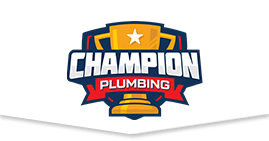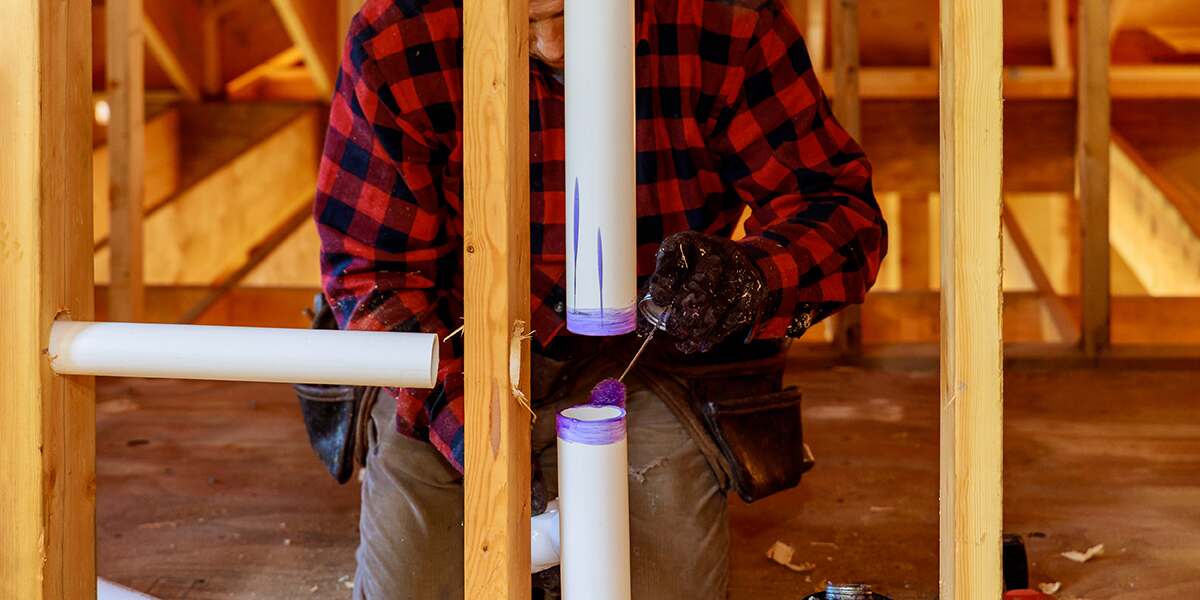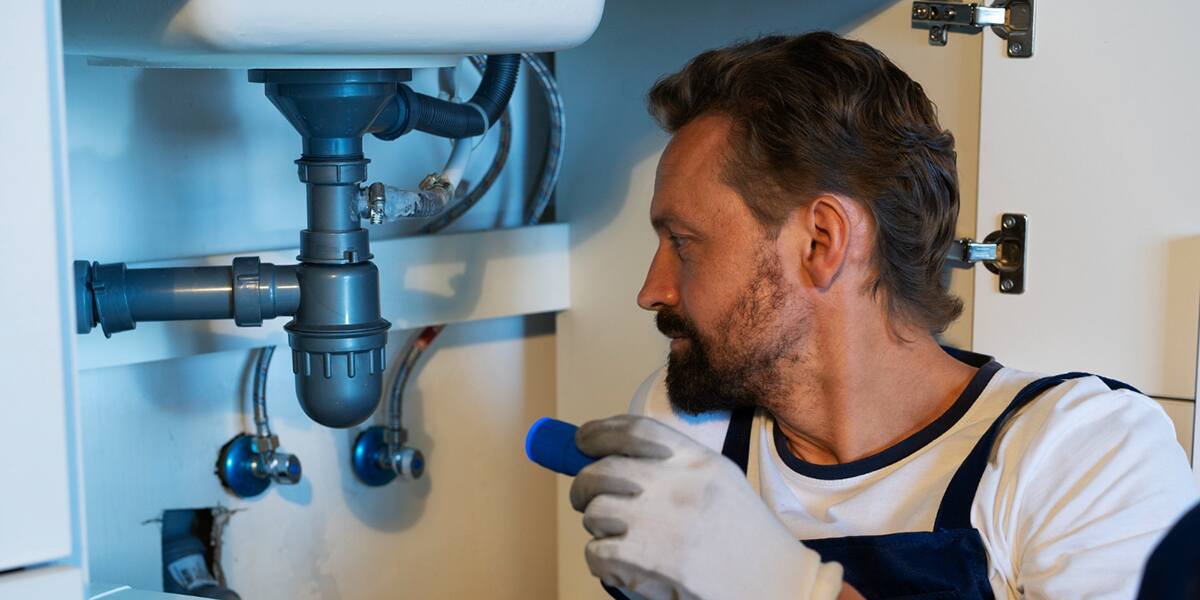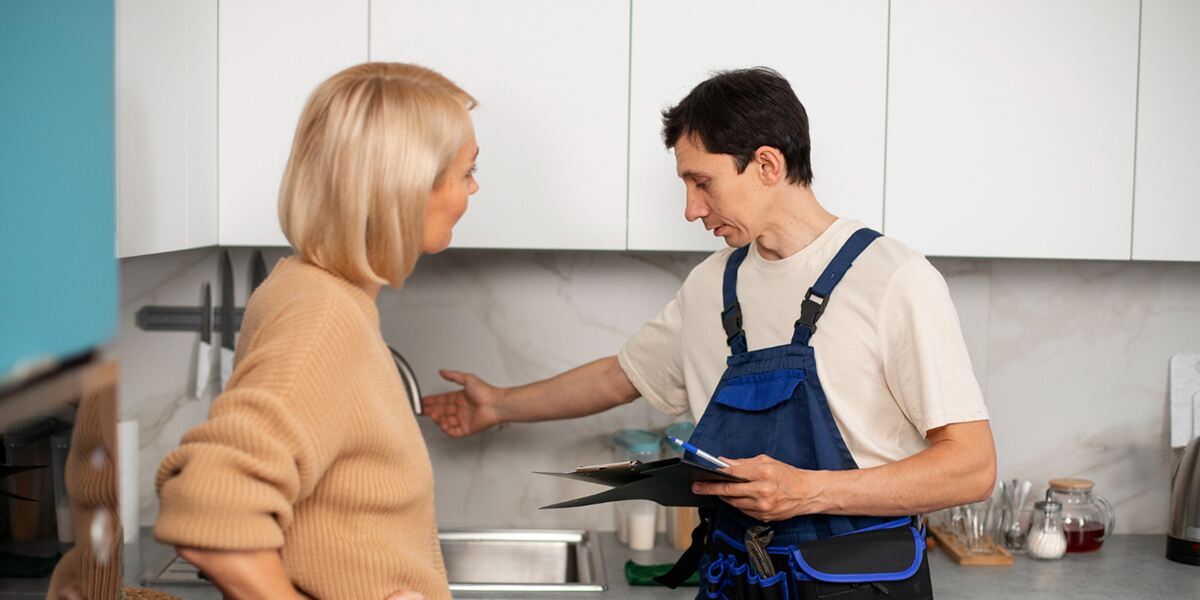All the plumbing pipes in your home — sinks, showers, tubs, toilets, etc. — connect to your home’s sewer main, which drains into a septic tank or public sewer system. Heavy rainfall and similar events can cause waste to flow in the opposite direction, flooding your basement or home with sewage.
Fortunately, a backwater valve can stop random sewer flooding. Our team from Champion Plumbing is here to answer the question, “What is a backwater valve, and do I need one in my plumbing system?”
Contact us today to speak to the best plumbers in Choctaw, OK!
What Is a Backwater Valve?
A backwater valve is a special valve that you can install in your sewer main to prevent sewage backups. Backwater valves allow water to flow in only one direction — out of your house — and have a mechanism that seals off the line if water starts flowing the wrong way.
You can either retrofit an existing sewer main with a backwater prevention valve or install one with new construction. Depending on where you live, local codes might require a backflow prevention device if your home connects to a public sewer line.
How Do Backwater Valves Work?
Sewer lines are slightly angled to ensure the water flows downhill and don’t sit in the pipe. In some cases of flooding, water can back up into the sewer main and into your home through toilets, showers, and other sources. The force of water coming back up the main activates a mechanism that closes off the pipe and stops the backflow of water.
Types of Backwater Valves
So, what is a backwater valve? Different types of backwater valves use different mechanisms for sewer backup prevention. Below is a list describing some of the most common types.
Disc Type
This type of backwater valve features a disc that seals against a rubber gasket lining the sewer line. The disk lies flat when water runs one way, but the force of water running in the opposite direction will cause it to close and seal the line.
Ball Check
Ball check valves have an interesting mechanism — a floating ball. When water flows out of your house, the pressure increases, and the ball rises with the water level, allowing the flow to pass. When pressure falls, the ball lowers and seals the sewer line, preventing backflow.
Plug Check
Plug check valves operate on a similar principle as ball check valves, except instead of a round ball, they use a disc-shaped plug. Water flowing out of the house pushes the plug out of the way, and it falls back into place when the water flow stops to prevent backwater flow.
How Do Plumbers Install Backwater Valves?
Plumbers install backwater valves by digging into your yard and cutting a section out of the existing sewer line. They will then place the backwater valve and connect it to the two ends of the sewer line. Depending on the location of the sewer line and its access conditions, installation usually takes anywhere between two to eight hours.
Depending on the location of your drains and downspouts, your plumber might also have to install a sump pump. When installing a backwater valve, be sure that the valve remains easily accessible, as you’ll need to access it for cleaning and maintenance. You should always call an expert for any kind of plumbing installation, as they understand the rules of plumbing safety and property installation techniques.
Do I Need a Backwater Valve?
If you live in a home where plumbing fixtures and pipes are below street level, installing a backwater valve is practically a necessity. Moreover, many areas have local codes mandating backwater valves for sub-street level homes. You should also highly consider a backwater valve if you live in an area that sees heavy rainfall or frequent flooding.
Benefits of Backwater Valves
Sewer backups are one of the most frustrating kinds of emergencies you can have. Raw sewage not only smells bad but can damage your house and pose a health hazard to your family. Backwater valves significantly reduce the possibility of basement flooding and provide sewer system protection. Many home warranties won’t cover sewer lines and plumbing issues, so a backflow valve can prevent some of the worst damage.
Moreover, flooding can damage irreplaceable items, like photos, collections, and memorabilia. A backflow valve can give you peace of mind, especially if you live in an area that has heavy annual rainfall or where flooding is common. In some cases, your insurance company may require you to install a backwater valve to maintain your policy.
Backwater Valve Maintenance
What is a backwater valve maintenance schedule?
Just like other parts of your plumbing system, backwater valves need regular maintenance to ensure they function properly and don’t get stuck in the open or closed position. Most backwater valves have a clear top, so you can visually inspect the lockout mechanism and see if there are any obstructions.
We recommend hiring a professional for backwater maintenance at least once a year; however, certain backwater models may require more frequent maintenance. In between professional sessions, you can perform several small preventative maintenance tasks, such as
- Get in the habit of visually inspecting the sewer valve on a regular basis.
- Flush the valve with warm water once every month to clear away debris. Debris can damage the lockout mechanism.
- Avoid flushing non-disposable wipes and anything that is not human waste or toilet paper. These materials can clog the pipe and damage the valve.
- Call a professional to clean the unit. Professional plumbers know what kind of chemicals and equipment to use to clean the unit without damaging the components.
#1 Plumbing Services in and Around Edmond!
Now that you know the answer to the question, “What is a backwater valve?” read our blog to learn how to find the sewer line on your property. If you would like to schedule an appointment for plumbing services, contact our Champion Plumbing team online or call (405) 889-1318 to schedule an appointment today!






